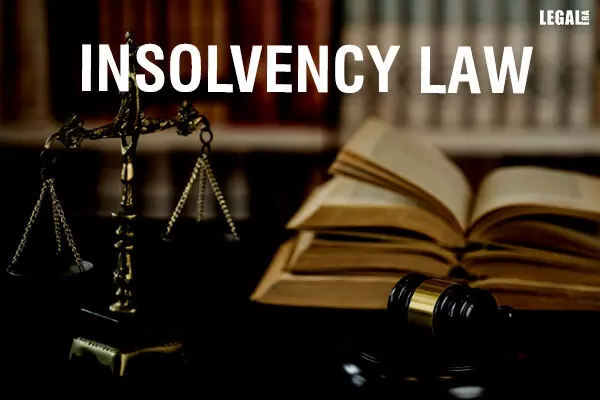- Home
- News
- Articles+
- Aerospace
- AI
- Agriculture
- Alternate Dispute Resolution
- Arbitration & Mediation
- Banking and Finance
- Bankruptcy
- Book Review
- Bribery & Corruption
- Commercial Litigation
- Competition Law
- Conference Reports
- Consumer Products
- Contract
- Corporate Governance
- Corporate Law
- Covid-19
- Cryptocurrency
- Cybersecurity
- Data Protection
- Defence
- Digital Economy
- E-commerce
- Employment Law
- Energy and Natural Resources
- Entertainment and Sports Law
- Environmental Law
- ESG
- FDI
- Food and Beverage
- Gaming
- Health Care
- IBC Diaries
- In Focus
- Inclusion & Diversity
- Insurance Law
- Intellectual Property
- International Law
- IP & Tech Era
- Know the Law
- Labour Laws
- Law & Policy and Regulation
- Litigation
- Litigation Funding
- Manufacturing
- Mergers & Acquisitions
- NFTs
- Privacy
- Private Equity
- Project Finance
- Real Estate
- Risk and Compliance
- Student Corner
- Take On Board
- Tax
- Technology Media and Telecom
- Tributes
- Viewpoint
- Zoom In
- Law Firms
- In-House
- Rankings
- E-Magazine
- Legal Era TV
- Events
- News
- Articles
- Aerospace
- AI
- Agriculture
- Alternate Dispute Resolution
- Arbitration & Mediation
- Banking and Finance
- Bankruptcy
- Book Review
- Bribery & Corruption
- Commercial Litigation
- Competition Law
- Conference Reports
- Consumer Products
- Contract
- Corporate Governance
- Corporate Law
- Covid-19
- Cryptocurrency
- Cybersecurity
- Data Protection
- Defence
- Digital Economy
- E-commerce
- Employment Law
- Energy and Natural Resources
- Entertainment and Sports Law
- Environmental Law
- ESG
- FDI
- Food and Beverage
- Gaming
- Health Care
- IBC Diaries
- In Focus
- Inclusion & Diversity
- Insurance Law
- Intellectual Property
- International Law
- IP & Tech Era
- Know the Law
- Labour Laws
- Law & Policy and Regulation
- Litigation
- Litigation Funding
- Manufacturing
- Mergers & Acquisitions
- NFTs
- Privacy
- Private Equity
- Project Finance
- Real Estate
- Risk and Compliance
- Student Corner
- Take On Board
- Tax
- Technology Media and Telecom
- Tributes
- Viewpoint
- Zoom In
- Law Firms
- In-House
- Rankings
- E-Magazine
- Legal Era TV
- Events
Supreme Court Rules Against Karnataka High Court Intervention In IBC Proceedings Against Associate Décor Promoter

Supreme Court Rules Against Karnataka High Court Intervention In IBC Proceedings Against Associate Décor Promoter
The Supreme Court overturned a Karnataka High Court ruling and reinstated personal insolvency proceedings against Farooq Ali Khan, promoter and director of Associate Décor Limited. The apex court held that the High Court had improperly exercised its writ jurisdiction by interfering in the statutory process under the Insolvency and Bankruptcy Code (IBC), 2016.
A bench of Justices P.S. Narasimha and Manoj Misra ruled that when statutory tribunals are established to determine legal and factual matters, High Courts should not overstep their judicial review authority to assume the role of a decision-making body.
The case revolved around the Karnataka High Court’s invocation of Article 226 of the Constitution to halt insolvency proceedings against Khan, who argued that his liability as a guarantor had been waived. The proceedings originated from a personal guarantee Khan provided for loans taken by Associate Décor Limited from a consortium of banks, including Bank of Baroda.
After the company defaulted, Bank of Baroda initiated personal insolvency proceedings against Khan under Section 95 of the IBC. The National Company Law Tribunal (NCLT), Bengaluru, appointed a resolution professional to examine the case and submit a report under Section 99 of the IBC. However, Khan challenged this move in the Karnataka High Court, which ruled in his favor and stopped the insolvency proceedings.
The Supreme Court set aside the High Court’s decision, emphasizing that it had improperly intervened before the resolution professional could complete their assessment—a crucial step in the insolvency process. The bench clarified that determining the validity of Khan’s guarantee fell within the adjudicating authority’s jurisdiction, not the High Court’s.
“The High Court ought not to have interdicted the proceedings under the statute and assumed what it did while exercising jurisdiction under Article 226,” the judgment stated.
Restoring the case to the NCLT, the Supreme Court directed the tribunal to expedite the matter, given that it has been pending since 2021.


